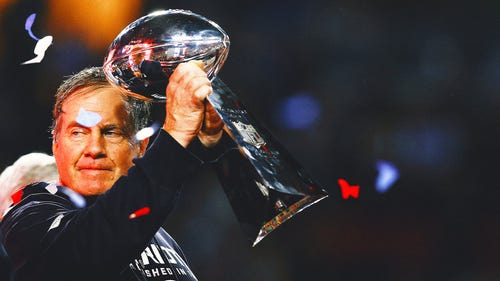
Jury selection resumes for Aaron Hernandez trial

FALL RIVER, Mass. – The murder trial against former football star Aaron Hernandez moved a step closer to reality Monday as another 375 potential jurors were summoned to the courthouse to fill out extensive questionnaires.
The potential jurors arrived in three waves of 125 people each, were escorted to a room on the third floor, and filled out a questionnaire used in courts across Massachusetts.
Prosecutors, Hernandez, and his attorneys appeared with the judge before each group of potential jurors for about 15 minutes in a ritual that was part history lesson, part acknowledgement of the world of 2015.
For instance, Judge E. Susan Garsh thanked the potential jurors for their service and talked about the importance of their role – and quoted from Thomas Jefferson: “I consider trial by jury as the only anchor ever yet imagined by man, by which a government can be held to the principles of its constitution.”
But she also admonished them not to talk to anyone about the case – and made it clear she didn’t just mean face-to-face discussions or telephone communications, telling them not to tweet, blog, e-mail or post anything on Facebook related to the case.
The predominantly white men and women who have been called to the courthouse will eventually be whittled to a jury of 18 – six of them will ultimately be designated as alternates – who will be tasked with deciding guilt or exoneration in the highly anticipated prosecution of Hernandez in the June 17, 2013, killing of Odin Lloyd.
The former New England Patriots tight end faces one count of first-degree murder and two weapons charges in Lloyd’s killing.
Judge Garsh, during her talks to potential jurors, reminded them that the mere existence of charges is not proof of guilt.
“An indictment is simply a piece of paper used to inform the defendant of the charges against him,” she said. “It is not evidence of anything.”
At each session, the attorneys and Hernandez departed the room and the potential jurors set about filling out a second, extensive questionnaire – one with more than 50 questions – crafted specifically for this case with input from both sides.
The process is scheduled to be repeated on Tuesday until nine groups of 125 potential jurors have filled out the questionnaires.
The attorneys on the two sides will then have the power to dismiss jurors based on their answers to the questionnaire for what is known as “good cause.” That process is expected to begin on Wednesday, when the two sides are scheduled to meet behind closed doors to go over the questionnaires.
In cases where both sides agree that a potential juror should be dismissed for “good cause,” the process is expected to move pretty quickly. In cases where one side wants to exclude a juror for cause but the other doesn’t, the judge will have to make the final decision.
Challenges for cause are scheduled to be heard by the judge on Thursday, and then on Friday remaining potential jurors will be questioned individually by the judge. At the end of that process with each person, the judge will declare that he or she either is or is not found to be a “fair and impartial” juror.
At that point, each side will have the ability to exclude potential jurors without giving any reason – a process that will continue until each side has exhausted 18 dismissals known as “peremptory” challenges and there are 18 certified jurors remaining.
That process is expected to last into next week. Once testimony begins, it has been estimated that the trial may last six to 10 weeks.
The case is being watched closely, and the judge earlier issued an order to prevent anyone entering the courtroom from wearing any Patriots, NFL or other team logos.
Hernandez, 25, has been accused of masterminding the murder of Lloyd, who was gunned down in a secluded field less than a mile from the player's home.
Lloyd, a 27-year-old semi-professional football player, was dating the sister of Hernandez’s fiancee, Shayanna Jenkins.
Prosecutors have alleged that Hernandez summoned two associates from his hometown of Bristol, Conn., to his Massachusetts home late the night of June 16, 2013, and simultaneously made plans to meet with Lloyd. Hernandez then allegedly drove the other two men, Carlos Ortiz and Ernest Wallace Jr., to the Dorchester neighborhood of Boston, picked up Lloyd, and returned to North Attleboro.
According to court documents, Hernandez allegedly drove into a secluded area in an industrial park that is surrounded by woods and mounds of asphalt, gravel and dirt. There, Lloyd was shot multiple times.
Although prosecutors have not said who they believe fired the fatal shots, they have asserted that Hernandez "orchestrated" the killing. Ortiz and Wallace have also been indicted on murder charges but will be tried separately. The prosecution does not plan to call either as a witness in the trial.
Hernandez has separately been indicted on multiple murder and assault charges in a July 16, 2012, shooting in South Boston that left two men dead and another wounded.
In the Boston killings, prosecutors have alleged that Hernandez became enraged after a man bumped him on a nightclub dance floor, spilling his drink, and failed to apologize. Later, they alleged that Hernandez followed the man and his friends as they drove away from the club, then pulled up next to their car at a stoplight and opened fire with a .38-caliber revolver, killing Daniel De Abreu, 29, and Safiro Furtado, 28, and wounding another man.
That trial was originally scheduled to begin May 28, but the judge there indicated recently he would push it back given the anticipated length of the trial in the Lloyd case. No new trial date has been set.










